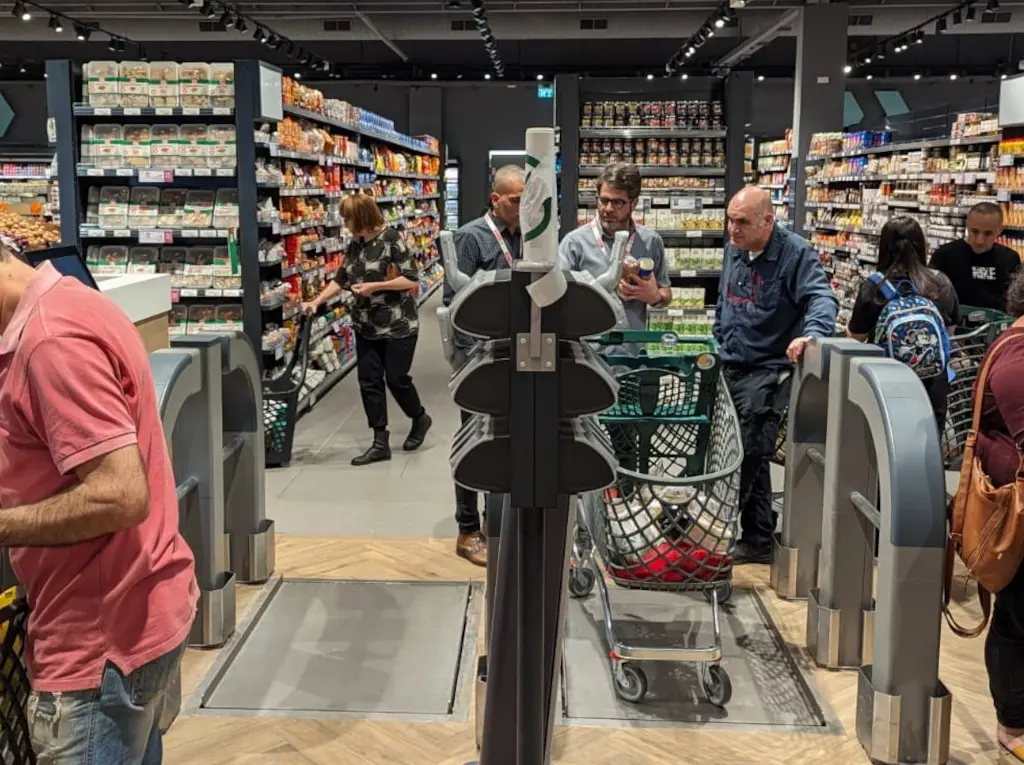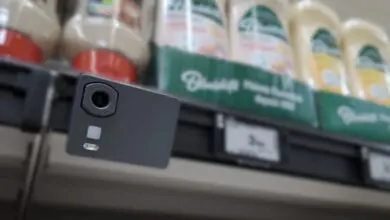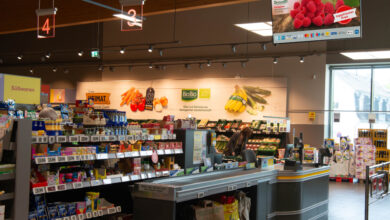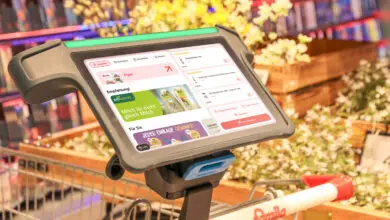First Spar supermarket in Israel validates self-scanning with Supersmart
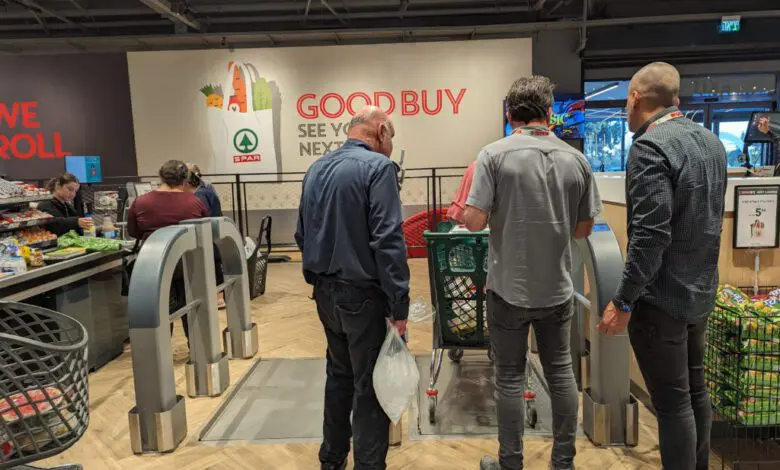
In the first Spar store in Israel, technology from Bizerba partner Supersmart verifies purchases registered via self-scanning. Customers pass with their trolleys through a gate before paying. A floor-mounted scale uses self-learning algorithms to check whether all goods have been scanned correctly. The system thus helps to reduce sales losses due to shrinkage.
Amit Zeev opened the first Spar supermarket in Israel in March. With an area of 2,500 square metres, the store in Kfar Saba, a suburb of Tel Aviv, offers around 750 Spar own-brand products in addition to local fresh produce and branded goods. Spar licence holder Amit Zeev was previously CEO of Israeli grocery retail company Mega-Bitan, which tried to establish the Carrefour brand against market leader Shufersal. Under the Spar brand, Amit Zeev is now planning to open a total of 35 stores in the country within five years, ten of which will open in the next few months. Last autumn, market leader in Israel, Shufersal, abandoned its plans to open at least ten Spar stores in the country. It cited competition law requirements and changing market conditions as the reason for this.
Supersmart CEO Tudor Andronic toldThe Retail Optimiser that since its market launch six years ago, the technology has been implemented internationally at 150 stores. In Europe, Metro uses the systems in Turkey, the Czech Republic, Romania, Hungary and Ukraine. Selgros has already installed the solution in Romania and plans to introduce it in Germany later this year.
Focus on validation
“Our solution is solely focussed on validating transactions,” explains Tudor Andronic, adding that the purchasing process will continue to change in many ways in the future. Supersmart can therefore dock onto the most diverse variants of self-scanning and self-checkout. Supersmart also supplies self-scanning software, which is also used at Spar. However, Andronic emphasises that this is only targeted at customers without their own app.
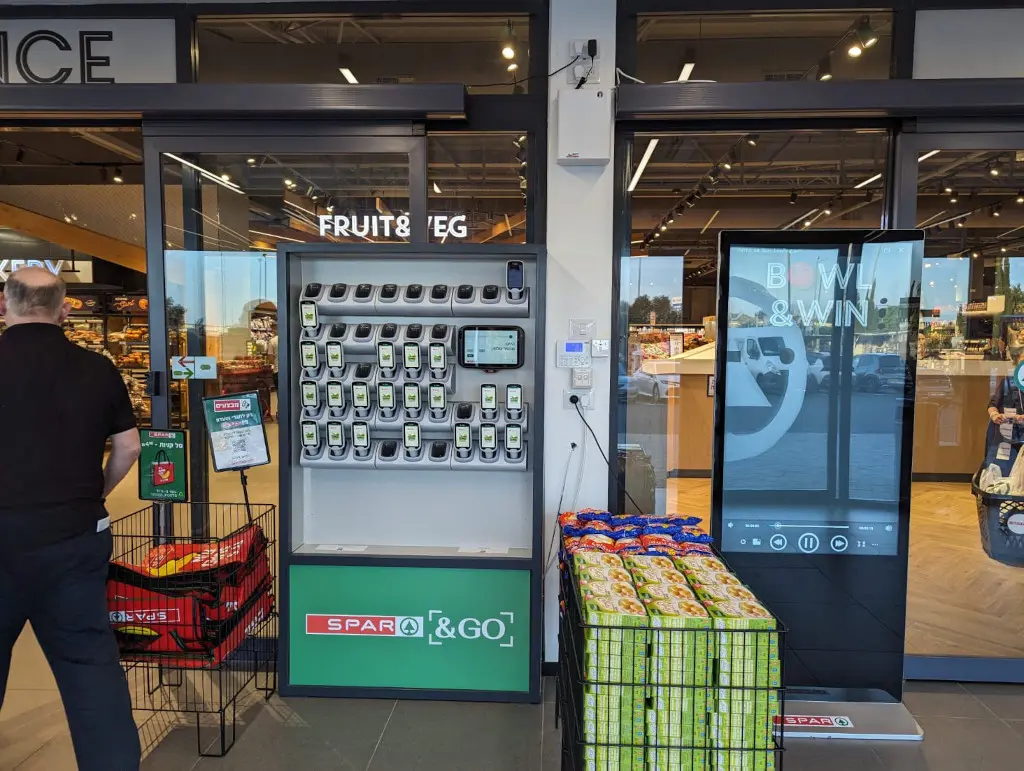
At Spar in Israel, customers first identify themselves with their credit or debit card, their loyalty card or their ID card at the issuing terminal for mobile scanners. One of the devices from manufacturer Zebra is then being released. Alternatively, customers can also use a self-scanning app on their iOS or Android smartphone. First, customers must scan a barcode on the shopping trolley. They can then use the device of their choice to record their purchases. Once they have finished shopping, they identify themselves with another scan at the Supersmart gate. A scale built into the floor determines the weight of the purchases and sends the data to the cloud. There, the software uses artificial intelligence to analyse whether all items have been scanned. This process takes between 1.5 and 3 seconds. Finally, the customer pays cashless at a payment terminal.
Self-scanning without increased shrinkage
If the system recognises an irregularity, it informs the customer accordingly and suggests which items may not have been scanned or scanned too often. Tudor Andronic reports that 95 per cent of cases can be corrected by the system without staff intervention. ”I can promise my customers that with Supersmart, inventory discrepancies in self-scanning will not increase compared to operations with staffed checkouts,” assures Tudor Andronic. One gate can replace three to five traditional checkouts, he adds.
To train the AI, each item in the range must be weighed three to five times. The software also learns any minor deviations in weight. The company offers Bluetooth scales and a special app for this purpose. Sampling the products for the training process takes no more time than an inventory.
Algorithms only reckon with weighing data
In addition to the Bizerba scales, the system also integrates two cameras with image recognition. In the past, Supersmart used a combination of weighing data and computer vision for validation. This is no longer the case today. “We now only use the camera images for audit purposes,” explains Tudor Andronic, ”we have realised that the additional image data makes no difference to the result of the analysis.”
